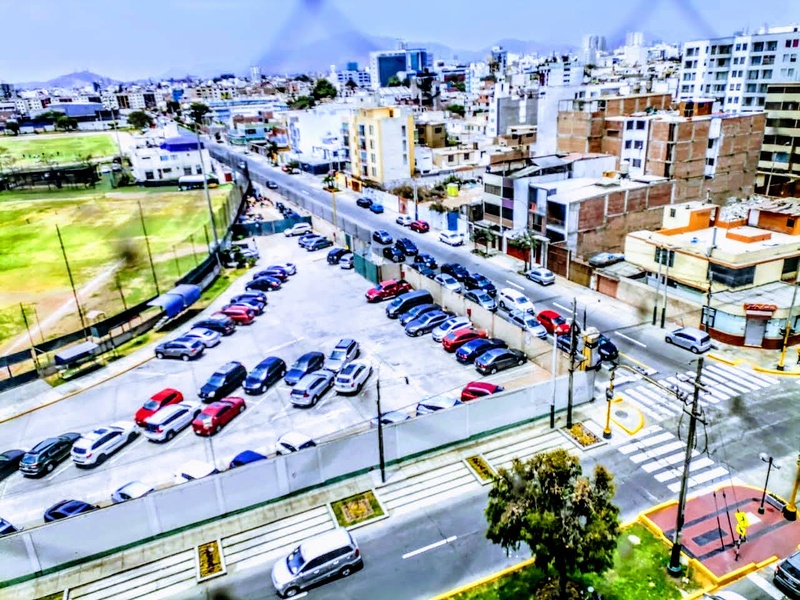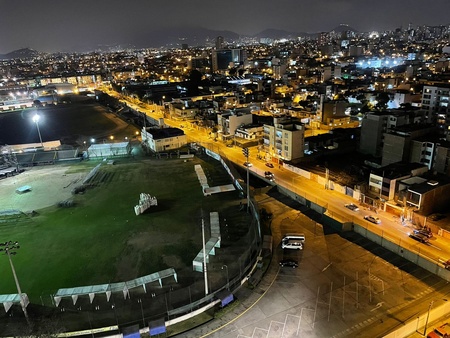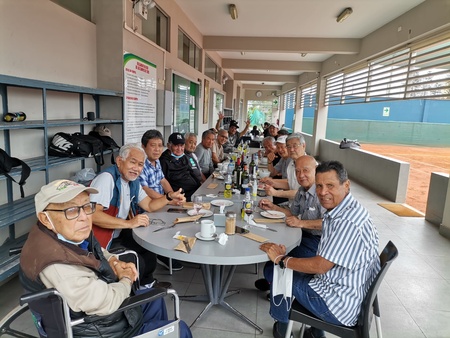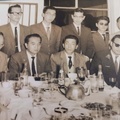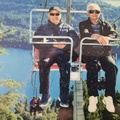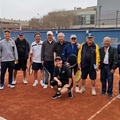To think about the year 1953 is to be at the beginning of the 69 years that the La Unión Stadium or AELU as it is known celebrates this year. I was thirteen years old and lived in the city of Jauja. I remember that every so often two oyisanes arrived from Lima with a receipt slip, in order to collect money for the payment that had to be made for the future AELU. The majority of adults in those years were from Japan, immigrants who without knowing the language arrived and worked for their Nikkei children. Many of them died at an early age due to their health, the economic state or the Second World War that the country was experiencing in those years. In the city of Jauja in those years there lived about twenty-five families and eight young people who, without a doubt, suffered from tuberculosis. The two oyisans left happy for the collaboration of the Japanese colony of Jauja.
Today, perhaps you will no longer find immigrant oyisanes, only their descendants from those families that left us a beautiful memory. The AELU. And many of those descendants think that we can do the same job that our parents did. Buy a land closest to the AELU and build a modern Rest House managed by the members of our Japanese colony.
The advantage of having AELU close is the great activity that takes place within its Sports Field and the La Unión School, which provides school activity during the days of the school week. From Monday to Friday, sports facilities are normally used by elderly athletes or retired people and, both in their passageways, sports venues, recreation centers and restaurants, as well as kiosks and walk-up cafes that they show off during the week, are the place of union and meeting of the elderly. “The meeting of all generations.”
When entering into activity and having the grandchildren at La Unión school, the grandparents may well meet their grandchildren at the Stadium or the grandchildren may visit them at the Rest House. And on Saturdays, Sundays and holidays, children who work in their businesses or in their professional appointments can visit them or meet their parents at the AELU, after their sports hours in the different institutions that fill us with pride for so many years of sport activities.
In recent years, when advanced age is the symbol of quietly reaching one hundred years of age, the rest homes that exist throughout the city are present in our minds. Within the colony it is no longer customary for the eldest son to take care of his elderly parents. Few families still do it. But many parents think that when children get married they already have other commitments and they have to look after their future. Loneliness is shocking in our senior years and many, with the ailments of the years, take refuge in where we have lived in recent years, near our workplaces.
And in many cases luck is with us. Those who live near the premises of the Peruvian Japanese Association or APJ, in the district of Jesús María, or near the institutional premises of the Okinawan Association of Peru, in the district of Ate. Or the institutional premises of Emmanuel, in the Ventanilla district. All of them, like our beloved AELU, represent the right place to spend an old age in the company of family and friends.
On the well-trodden path along which today many of the elderly live far away or hidden for different reasons, there is only one hope: to end life with the tranquility that we have experienced and to fill with friends the moments that we still have left in our short life. path. If our grandparents and parents left us institutions along the way, it is we who have to continue along that path of collaboration and leave behind all common good as traces for the benefit of those who need it most.
Today, reaching the age of eighty is a leap rewarded with the hope of living again. Happy time with scrolls that shake our bodies and vain memories that force us to ask our friends the last name of the person who approaches us to greet us. Seeing ourselves continuously is a great joy that, little by little, reveals to us how well our brain works. And the tranquility that the AELU represents to us at this time is healthily the hope that we cannot find in parks and public places.
We always think about our happy childhood every time La Unión School is in operation. We run as if to say – you can't reach me – or we simply look at the arrival of our grandchildren and say to ourselves. “Blessed is the school that forces us to get together today.”
Soccer was always the sport that intoxicated us from an early age. The sports fields emerged every afternoon that the rag ball returned to our dreams, and there the hope was to win. The desolate places were our soccer fields and a couple of stones symbolized the faint arch that we could not touch. The rain, in my case, represented the bustle of a public that was never disappointed in our game.
Today the children at AELU show all their vitality. Their beautiful uniform, their designer shoes, the tenor of a ball and a field with its painted signs and the bustle of a stand that is filled with shouts and smiles. The afternoon, the one that always marked the scroll of a goal, often returns to my pleasant memories.
Next year marks 70 years of AELU, a lifetime. Mine will mark 83 years and when discussing with my friends the hope that the AELU gives us, we give positive responses. Our parents, with the little they had, gave us a great example of solidarity. Today the Nikkei is a businessman, professional and with a better life status. We hope to leave to future generations the complete reason for reaching a third age that is well worth enjoying in company and close to our sports field.
Hope will always be written in a sporting tone. Not all of us reach the end of the road with luck. But we do understand that the fragile thing in life is the friendship that will always prevail at AELU.
© 2022 Luis Iguchi Iguchi


